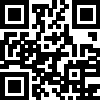2008εΙ¥φàêηÄÉδΗ™εç΅φ€§η΄±η·≠ι΅çγ²Ιη·≠φ≥ïεÖ≠οΦöεä®η·ç
ψÄÄψÄÄεÖ≠ψĹεä®η·ç
ψÄÄψÄÄ1ψĹεä®η·çεàÜγ±ΜοΦàδΗÄοΦâοΦöηΩûγ≥Μεä®η·çψĹε°ûδΙâεä®η·çψĹεä©εä®η·ç壨φÉÖφĹεä®η·çψIJ
ψÄÄψÄÄ1.1εΗΗγî®γö³ηΩûγ≥Μεä®η·çφ€âοΦö
ψÄÄψÄÄappearbebecomecomefallfeelgetgogrowkeep
ψÄÄψÄÄlieremainrestrunsmellsoundstandstaytastelook
ψÄÄψÄÄ1.2ε°ûδΙâεä®η·çφ€âεèäγâ©εä®η·ç壨δΗçεèäγâ©εä®η·çδΙ΄εàÜ
ψÄÄψÄÄ1.3εä©εä®η·çφ½†ε°ûιôÖφ³èδΙâοΦ¨εèΣηΒΖη·≠φ≥ïδΫ€γî®οΦö
ψÄÄψÄÄDoyoureadnewspapereverydayοΦüThejobwillbefinishedsoon.
ψÄÄψÄÄ1.4φÉÖφĹεä®η·çδΗçηÉΫεçï㴧δΫ€ηΑ™η·≠οΦ¨εΔûεä†ηΑ™η·≠γö³φÉÖφĹψĹη·≠φΑîγ≠âηâ≤εΫ©ψIJ
ψÄÄψÄÄ2ψĹεä®η·çγßçγ±ΜοΦàδΚ¨οΦâ
ψÄÄψÄÄ2.1γï¨ιôêφÄßεä®η·çοΦàδΗçηÉΫδΗéηΓ®γΛΚφ¨¹γΜ≠δΗÄφ°Βφ½Ει½¥γö³γäΕη·≠ηΩûγî®οΦâοΦ¨εΠ²οΦö
ψÄÄψÄÄcatchcomediefindgivejoinkillloseleavemarryrealize
ψÄÄψÄÄ2.2ιùûγï¨ιôêφÄßεä®η·çοΦàφâÄηΓ®γΛΚγö³εä®δΫ€φà•γäΕφĹεè·δΜΞδΗÄ㦥ηΩ¦ηΓ¨δΗ΄εéΜοΦâ
ψÄÄψÄÄβë†φäΞηÄÉεä®η·çοΦöliveοΦ¨sitοΦ¨standοΦ¨studyοΦ¨talkοΦ¨workοΦ¨writeγ≠â
ψÄÄψÄÄβëΓγäΕφĹεä®η·çοΦöbeοΦ¨belongοΦ¨consistοΦ¨existοΦ¨feelοΦ¨hateοΦ¨haveοΦ¨hopeοΦ¨loveοΦ¨wantγ≠â
ψÄÄψÄÄ3ψĹεΗΗηΖüεè¨ε°Ψη·≠γö³εä®η·çφ€âοΦö
ψÄÄψÄÄaskbringbuychoosedodenyfetchgetgivegranthandleavelend
ψÄÄψÄÄmakeofferorderpaypasspromisesellsendshowtaketeachtellwrite
ψÄÄψÄÄεΗΗηß¹εä®η·çφê≠ιÖçοΦö
ψÄÄψÄÄ1ψĹεä®η·ç+δΜ΄η·çοΦö
ψÄÄψÄÄlistentoεê§amounttoγ≠âδΚélongforφΗ¥φ€¦callonεèΖεè§operateonδΗΚβÄΠβÄΠεä®φâ΄φ€·
ψÄÄψÄÄconsistofγî±βÄΠβÄΠγΜ³φàêresistinεùöφ¨¹accountforηßΘι΅älookat〴careforγÖßιΓΨ
ψÄÄψÄÄobjecttoεèçε·Ιsendforφ¥ΨδΚΚεéΜη·ΖrelyonδΨùιù†dependonδΨùιù†standforδΜΘηΓ®
ψÄÄψÄÄlaughatε‰≤γ§ëwaitforγ≠âεΨÖlookintoηΑÉφüΞapplyforγî≥η·ΖbelieveinδΩΓδΜΑ
ψÄÄψÄÄplaywithγé©comeacrossγΔΑηß¹gothroughιÄöηΩ΅
ψÄÄψÄÄ2ψĹεä®η·ç+εâ·η·çοΦö
ψÄÄψÄÄgiveupφîΨεΦÉcarryoutφâßηΓ¨lookupφüΞφâΨpointoutφ¨΅ε΅ΚbringupφäöεÖΜ
ψÄÄψÄÄfindoutφüΞφ‰éhandinδΗäδΚΛmakeoutη°Λε΅ΚthinkoverηÄÉηôëputonγ©Ω
ψÄÄψÄÄwipeoutφΕàγ¹≠pickupφ΄ΘηΒΖthrowawayφä¦εΦÉsetupεΜΚγΪ΄takeoffη³±φéâ
ψÄÄψÄÄturndownφ΄£γΜùgiveawayφö¥ι€≤handoutεàÜεèëcalloffεè•φΕàturnoffεÖ≥φéâ
ψÄÄψÄÄknockoffε¹€εΖΞstandupηΒΖγΪ΄breakdownε΅Κφ·¦γ½ÖlookoutεΑèεΩÉtakeoffηΒΖιΘû
ψÄÄψÄÄrunoutηĽεΑΫcatchupηΒΕδΗägiveinη°©φ≠ΞgrowupιïΩεΛßhangaroundιĽγïô
ψÄÄψÄÄpassawayεéΜδΗ•showoffγ²ΪηÄÄdropoutιÄÄε΅ΚgetupηΒΖεΚägoonγΜßγΜ≠
ψÄÄψÄÄ3ψĹεä®η·ç+εâ·η·ç+δΜ΄η·çοΦö
ψÄÄψÄÄcutdownonε΅èεΑëgetalongwithδΗéβÄΠγ¦ΗεΛ³runoutofγî®εÖâlookuptoεΑäφï§datebacktoηΩΫφΚ·
ψÄÄψÄÄgetthroughwithε°¨φàêkeepupwithηΖüδΗämakeupforηΓΞε¹Ωcomedownwithφ²Θγ½Ösitinonφ½¹εê§
ψÄÄψÄÄdoawaywithφä¦εΦÉlookforwardtoφ€üφ€¦putupwithεΩçεè½standuptoεèçε·ΙlookdownuponγûßδΗçηΒΖ
ψÄÄψÄÄ4ψĹεä®η·ç+εêçη·ç+δΜ΄η·ç
ψÄÄψÄÄcatchsightof〴ηß¹findfaultwithφ¨ëβÄΠφ·¦γ½ÖkeepaneyeonγÖß〴makefunofεè•γ§ë
ψÄÄψÄÄmakefriendswithδΗéβÄΠδΚΛεè΄payattentiontoφ≥®φ³èshakehandswithδΗéβÄΠφèΓφâ΄takeadvantageofεà©γî®
ψÄÄψÄÄtakepartinεè²εä†getridofφëÜη³±giverisetoεΦïηΒΖlosesightof〴δΗçηß¹
ψÄÄψÄÄmakeuseofεà©γî®takecareofγÖßφ•ôthrowlightonι‰êφ‰éputastoptoγΜ™φùü
ψÄÄψÄÄφ½ΕφĹ
ψÄÄψÄÄδΫ™φĹδΗÄηà§ηΩ¦ηΓ¨ε°¨φàêε°¨φàêηΩ¦ηΓ¨
ψÄÄψÄÄφ½Ει½¥be+γéΑε€®εàÜη·çhave+ηΩ΅εéΜεàÜη·çhavebeen+
ψÄÄψÄÄγéΑε€®εàÜη·ç
ψÄÄψÄÄγéΑε€®works
ψÄÄψÄÄworkis
ψÄÄψÄÄam+working
ψÄÄψÄÄarehas
ψÄÄψÄÄhave+workedhas
ψÄÄψÄÄhave+beenworking
ψÄÄψÄÄηΩ΅εéΜworkedwas
ψÄÄψÄÄwere+workinghadworkedhadbeenworking
ψÄÄψÄÄεΑÜφùΞwill
ψÄÄψÄÄshall+workwill
ψÄÄψÄÄshall+beworkingwill
ψÄÄψÄÄshall+haveworkedwill
ψÄÄψÄÄshall+havebeenworking
ψÄÄψÄÄηΩ΅εéΜεΑÜφùΞwould
ψÄÄψÄÄshould+workwould
ψÄÄψÄÄshould+beworkingwould
ψÄÄψÄÄshould+haveworkedwould
ψÄÄψÄÄshould+havebeenworking
ψÄÄψÄÄ1ψĹδΗÄηà§γéΑε€®φ½Ε
ψÄÄψÄÄ1.1ηΓ®δΙ†φÉ·φÄßεä®δΫ€οΦ¦δΚΚφà•δΚ΄γâ©γö³γâΙφÄßφà•γäΕφĹοΦ¦ε°Δηß²γ€üγêÜγ≠â
ψÄÄψÄÄEveryoneisinhighspirits.Lighttravelsmorequicklythansound.
ψÄÄψÄÄ1.2γî®δΚéφ½Ε齥壨φùΓδΜΕγäΕη·≠δΜéεèΞοΦ¨δΜΘφ¦ΩδΗÄηà§εΑÜφùΞφ½Ε
ψÄÄψÄÄIfitisfinetomorrowοΦ¨wewillgoonapicnic.WhenyoucomenexttimeοΦ¨bringmesomemagazines.
ψÄÄψÄÄ1.3δΗéεÖΖφ€â"ε΅ΚεèëοΦ¨εàΑηΨΨ"εêΪδΙâγö³εä®η·çηΩûγî®οΦ¨ηΓ®γΛΚφ¨âη°Γεà£εΑÜηΠ¹εèëγîüγö³εä®δΫ€
ψÄÄψÄÄThedelegationarrivesinBeijingthisafternoon.Thereisanewfilmtonight.
ψÄÄψÄÄ2ψĹδΗÄηà§ηΩ΅εéΜφ½ΕοΦàηΓ®γΛΚηΩ΅εéΜφüêφ½Ει½¥γö³εä®δΫ€φà•γäΕφĹοΦâ
ψÄÄψÄÄThechildrenwentoutjustnow.Shediedtenyearsago.Ilostmywalletatthetheatre.
ψÄÄψÄÄ3ψĹδΗÄηà§εΑÜφùΞφ½Ε
ψÄÄψÄÄ3.1will/shalldoοΦöNextmonthοΦ¨mysisterwillbenineteen.Ishall/willreturnyouthebooktomorrow.
ψÄÄψÄÄ3.2begoingtodoοΦöThewallisgoingtobepaintedgreen.Itisgoingtorain.
ψÄÄψÄÄ3.3betodoηΓ®γΛΚφ¨âη°Γεà£ηΠ¹εèëγîüγö³δΚ΄οΦöWearetomeetattheschoolgate.
ψÄÄψÄÄ3.4beabouttodoεç≥εΑÜοΦàφ≠ΘηΠ¹οΦâε¹öφüêδΚ΄οΦöAutumnharvestisabouttostart.
ψÄÄψÄÄ4ψĹδΗÄηà§ηΩ΅εéΜεΑÜφùΞφ½Ε
ψÄÄψÄÄHesaidthathewouldgetmarriedsoon.Iaskedhimwhenhewouldcomehereagain.
ψÄÄψÄÄ5ψĹγéΑε€®ηΩ¦ηΓ¨φ½Ε
ψÄÄψÄÄ5.1ηΓ®γΛΚη·¥η·ùφ½ΕοΦ¨φà•γéΑι‰Εφ°Βφ≠Θε€®ηΩ¦ηΓ¨γö³εä®δΫ€φà•εèëγîüγö³φÉÖεÜΒψIJTheyaremakinganexperimentnow.
ψÄÄψÄÄ5.2η°Γεà£εç≥εΑÜεèëγîüοΦ¨εΠ²goοΦ¨comeοΦ¨leaveοΦ¨arriveοΦöHeiscomingherenextweekandisstayinghereuntilAugust.
ψÄÄψÄÄ6ψĹηΩ΅εéΜηΩ¦ηΓ¨φ½Ε
ψÄÄψÄÄWeweretalkingaboutyouamomentago.Iwasplayingthepianowhenshecamein.
ψÄÄψÄÄ7ψĹεΑÜφùΞηΩ¦ηΓ¨φ½Ε
ψÄÄψÄÄWhatwillyoubedoingthistimetomorrowοΦüIbelieveheβÄôllbecomingsoon.
ψÄÄψÄÄ8ψĹγéΑε€®ε°¨φàêφ½Ε
ψÄÄψÄÄ8.1ηΩ΅εéΜεèëγîüδΫÜε·ΙγéΑε€®φ€âεΫ±ε™çγö³εä®δΫ€οΦ¨εΗΗηΖüφ½Ει½¥γäΕη·≠alreadyοΦ¨yetοΦ¨neverοΦ¨beforeοΦ¨recentlyοΦ¨justοΦ¨everοΦ¨onceηΩûγî®ψIJ
ψÄÄψÄÄIhavebeentoPekingmanytimes.Theyhavealreadypublishedtheresultsoftheirexperiments.
ψÄÄψÄÄ8.2δΜéηΩ΅εéΜφüêφ½Ει½¥εΦÄεß΄δΗÄ㦥εΜΕγΜ≠εàΑγéΑε€®οΦàεè·ηÉΫηΩ‰ηΠ¹γΜßγΜ≠δΗ΄εéΜοΦâγö³εä®δΫ€οΦ¨εΗΗηΖüφ½Ει½¥γäΕη·≠sinceοΦ¨fortwoyearsοΦ¨
ψÄÄψÄÄsofarοΦ¨inrecentyearsγ≠âοΦàδΫΩγî®εΜΕγΜ≠φÄßεä®η·çοΦâ
ψÄÄψÄÄHehaslivedheresince1984.IhavestudiedEnglishfortwoyears.
ψÄÄψÄÄ1οΦâδΜ•εè²εܦεΖ≤γΜèφ€âεç¹εΙ¥δΚÜψIJβë†Hehasbeenanarmymanfortenyears.
ψÄÄψÄÄβëΓItisοΦàhasbeenοΦâtenyearssincehejoinedthearmy.
ψÄÄψÄÄβëΔHejoinedthearmytenyearsago.
ψÄÄψÄÄ2οΦâItisοΦàhasbeenοΦâβÄΠsinceοΦöItisοΦàhasbeenοΦâalongtimesincetheylastmeteachother.
ψÄÄψÄÄ3οΦâThisisthefirstοΦàsecondοΦâtimethatβÄΠοΦöThisisthesecondtimethatIhavebrokenacupthisyear.
ψÄÄψÄÄ9ψĹηΩ΅εéΜε°¨φàêφ½Ε
ψÄÄψÄÄJohnhadlearnedsomeChinesebeforehecametoChina.Hefoundthebookthathehadlost.
ψÄÄψÄÄBytheendoflastyearοΦ¨Ihadworkedinthiscollegefortenyears.
ψÄÄψÄÄ***nosoonerβÄΠβÄΠβÄΠthanοΦ¨hardlyοΦàscarcelyοΦâβÄΠβÄΠwhenοΦàbeforeοΦâ
ψÄÄψÄÄWehadnosoonerreachedhomethanitbegantorain.Nosoonerhadwereachedhomethanitbegantorain.
ψÄÄψÄÄHehadhardlyenteredtheofficewhenοΦàbeforeοΦâthephonerang.
ψÄÄψÄÄ10ψĹγéΑε€®ε°¨φàêηΩ¦ηΓ¨φ½ΕοΦàεΗΗηΖüforhoursοΦ¨sincethismorningγ≠âηΓ®γΛΚδΗÄφ°Βφ½Ει½¥γö³γäΕη·≠ηΩûγî®οΦâ
ψÄÄψÄÄTheyhavebeenwatchingTVfortwohours.Hehasbeenworkingonthisessaysincethismorning.
ψÄÄψÄÄ11ψĹφ½ΕφĹεëΦεΚîγâΙφ°äηß³εàô
ψÄÄψÄÄKeplerprovedthatthesunisthecenterofthesolarsystem.ε°Δηß²γ€üγêÜ
ψÄÄψÄÄIdidnβÄôtgototheballbecauseIamnotfondofdancing.φ³èδΙâι€ÄηΠ¹
ψÄÄψÄÄηΔΪεä®η·≠φĹ
ψÄÄψÄÄδΗÄηà§φ½ΕφĹηΩ¦ηΓ¨φ½ΕφÄ¹ε°¨φàêφ½ΕφĹ
ψÄÄψÄÄγéΑε€®am
ψÄÄψÄÄiswritten
ψÄÄψÄÄaream
ψÄÄψÄÄisbeinggiven
ψÄÄψÄÄarehas
ψÄÄψÄÄbeenwritten
ψÄÄψÄÄhave
ψÄÄψÄÄηΩ΅εéΜwas
ψÄÄψÄÄwerewrittenwas
ψÄÄψÄÄwerebeinggivenhadbeenwritten
ψÄÄψÄÄεΑÜφùΞshall
ψÄÄψÄÄwillbewrittenshall
ψÄÄψÄÄwillhavebeenwritten
ψÄÄψÄÄηΩ΅εéΜεΑÜφùΞshould
ψÄÄψÄÄwouldbewrittenshould
ψÄÄψÄÄwouldhavebeenwritten
ψÄÄψÄÄ***φ€âδΚ¦εä®η·çηΓ®γΛΚγäΕφĹφà•εÖ≥γ≥ΜοΦ¨ιÄöεΗΗδΗçγî®δΚéηΔΪεä®η·≠φĹοΦö
ψÄÄψÄÄcostηä±η¥ΙfitιIJεêàhaveφ€âholdε°ΙγΚ≥lackγΦΚδΙè
ψÄÄψÄÄownεç†φ€âpossessφ΄Ξφ€âresembleεÉèsuitιIJεêàlastφ¨¹γΜ≠
ψÄÄψÄÄTheboyresembleshisfather.Wehavefriendsallovertheworld.
ψÄÄψÄÄ***εΑëφïΑγü≠η·≠εä®η·çιÄöεΗΗεèΣγî®ηΔΪεä®η·≠φĹοΦö
ψÄÄψÄÄβë†betakeninεè½ιΣ½οΦ¨δΗäεΫ™βëΓbesupposedtodosomethingεΚîη·ΞοΦ¨ηΔΪφ€üφ€¦
ψÄÄψÄÄβëΔbeintendedforsomethingοΦàsomebodyοΦâ/todosomethingφ½®ε€®οΦ¨γî®δΚé
ψÄÄψÄÄThebookisintendedforbeginners.Wearesupposedtomeetatthegateat7οΦö00.
ψÄÄψÄÄ***ηۧ娕δΗΚγ≥Μεä®η·çγö³φ³üε°‰εä®η·ç+ηΓ®η·≠
ψÄÄψÄÄGoodmedicinetastesbitter.Thismaterialfeelsverysoft.
ψÄÄψÄÄ***δΗçεèäγâ©εä®η·ç壨η·çγΜ³φ½†ηΔΪεä®η·≠φĹοΦöHowlongdidthemeetinglastοΦü
ψÄÄψÄÄ***incaseοΦ¨whetherοΦ¨whereοΦ¨assoonasι¹ΒγÖß"δΗΜεΑÜδΜéγéΑ"εéüεàôοΦ¨δΗΜεèΞγî®εΑÜφùΞφ½ΕφĹοΦ¨δΜéεèΞγî®γéΑε€®φ½ΕφĹ
ψÄÄψÄÄWhetherIwinorloseοΦ¨Iwillhaveagoodtime.IwillwritetoyouassoonasIgethere.
ψÄÄψÄÄ***ηΓ®γΛΚεΩÉγêÜφ¥Μεä®ε£¨ε≠‰ε€®γö³εä®η·çδΗÄηà§δΗçγî®ηΩ¦ηΓ¨φ½ΕφĹοΦöTheyloveandrespecteachother.
ψÄÄψÄÄ1ψĹεä®η·çεàÜγ±ΜοΦàδΗÄοΦâοΦöηΩûγ≥Μεä®η·çψĹε°ûδΙâεä®η·çψĹεä©εä®η·ç壨φÉÖφĹεä®η·çψIJ
ψÄÄψÄÄ1.1εΗΗγî®γö³ηΩûγ≥Μεä®η·çφ€âοΦö
ψÄÄψÄÄappearbebecomecomefallfeelgetgogrowkeep
ψÄÄψÄÄlieremainrestrunsmellsoundstandstaytastelook
ψÄÄψÄÄ1.2ε°ûδΙâεä®η·çφ€âεèäγâ©εä®η·ç壨δΗçεèäγâ©εä®η·çδΙ΄εàÜ
ψÄÄψÄÄ1.3εä©εä®η·çφ½†ε°ûιôÖφ³èδΙâοΦ¨εèΣηΒΖη·≠φ≥ïδΫ€γî®οΦö
ψÄÄψÄÄDoyoureadnewspapereverydayοΦüThejobwillbefinishedsoon.
ψÄÄψÄÄ1.4φÉÖφĹεä®η·çδΗçηÉΫεçï㴧δΫ€ηΑ™η·≠οΦ¨εΔûεä†ηΑ™η·≠γö³φÉÖφĹψĹη·≠φΑîγ≠âηâ≤εΫ©ψIJ
ψÄÄψÄÄ2ψĹεä®η·çγßçγ±ΜοΦàδΚ¨οΦâ
ψÄÄψÄÄ2.1γï¨ιôêφÄßεä®η·çοΦàδΗçηÉΫδΗéηΓ®γΛΚφ¨¹γΜ≠δΗÄφ°Βφ½Ει½¥γö³γäΕη·≠ηΩûγî®οΦâοΦ¨εΠ²οΦö
ψÄÄψÄÄcatchcomediefindgivejoinkillloseleavemarryrealize
ψÄÄψÄÄ2.2ιùûγï¨ιôêφÄßεä®η·çοΦàφâÄηΓ®γΛΚγö³εä®δΫ€φà•γäΕφĹεè·δΜΞδΗÄ㦥ηΩ¦ηΓ¨δΗ΄εéΜοΦâ
ψÄÄψÄÄβë†φäΞηÄÉεä®η·çοΦöliveοΦ¨sitοΦ¨standοΦ¨studyοΦ¨talkοΦ¨workοΦ¨writeγ≠â
ψÄÄψÄÄβëΓγäΕφĹεä®η·çοΦöbeοΦ¨belongοΦ¨consistοΦ¨existοΦ¨feelοΦ¨hateοΦ¨haveοΦ¨hopeοΦ¨loveοΦ¨wantγ≠â
ψÄÄψÄÄ3ψĹεΗΗηΖüεè¨ε°Ψη·≠γö³εä®η·çφ€âοΦö
ψÄÄψÄÄaskbringbuychoosedodenyfetchgetgivegranthandleavelend
ψÄÄψÄÄmakeofferorderpaypasspromisesellsendshowtaketeachtellwrite
ψÄÄψÄÄεΗΗηß¹εä®η·çφê≠ιÖçοΦö
ψÄÄψÄÄ1ψĹεä®η·ç+δΜ΄η·çοΦö
ψÄÄψÄÄlistentoεê§amounttoγ≠âδΚélongforφΗ¥φ€¦callonεèΖεè§operateonδΗΚβÄΠβÄΠεä®φâ΄φ€·
ψÄÄψÄÄconsistofγî±βÄΠβÄΠγΜ³φàêresistinεùöφ¨¹accountforηßΘι΅älookat〴careforγÖßιΓΨ
ψÄÄψÄÄobjecttoεèçε·Ιsendforφ¥ΨδΚΚεéΜη·ΖrelyonδΨùιù†dependonδΨùιù†standforδΜΘηΓ®
ψÄÄψÄÄlaughatε‰≤γ§ëwaitforγ≠âεΨÖlookintoηΑÉφüΞapplyforγî≥η·ΖbelieveinδΩΓδΜΑ
ψÄÄψÄÄplaywithγé©comeacrossγΔΑηß¹gothroughιÄöηΩ΅
ψÄÄψÄÄ2ψĹεä®η·ç+εâ·η·çοΦö
ψÄÄψÄÄgiveupφîΨεΦÉcarryoutφâßηΓ¨lookupφüΞφâΨpointoutφ¨΅ε΅ΚbringupφäöεÖΜ
ψÄÄψÄÄfindoutφüΞφ‰éhandinδΗäδΚΛmakeoutη°Λε΅ΚthinkoverηÄÉηôëputonγ©Ω
ψÄÄψÄÄwipeoutφΕàγ¹≠pickupφ΄ΘηΒΖthrowawayφä¦εΦÉsetupεΜΚγΪ΄takeoffη³±φéâ
ψÄÄψÄÄturndownφ΄£γΜùgiveawayφö¥ι€≤handoutεàÜεèëcalloffεè•φΕàturnoffεÖ≥φéâ
ψÄÄψÄÄknockoffε¹€εΖΞstandupηΒΖγΪ΄breakdownε΅Κφ·¦γ½ÖlookoutεΑèεΩÉtakeoffηΒΖιΘû
ψÄÄψÄÄrunoutηĽεΑΫcatchupηΒΕδΗägiveinη°©φ≠ΞgrowupιïΩεΛßhangaroundιĽγïô
ψÄÄψÄÄpassawayεéΜδΗ•showoffγ²ΪηÄÄdropoutιÄÄε΅ΚgetupηΒΖεΚägoonγΜßγΜ≠
ψÄÄψÄÄ3ψĹεä®η·ç+εâ·η·ç+δΜ΄η·çοΦö
ψÄÄψÄÄcutdownonε΅èεΑëgetalongwithδΗéβÄΠγ¦ΗεΛ³runoutofγî®εÖâlookuptoεΑäφï§datebacktoηΩΫφΚ·
ψÄÄψÄÄgetthroughwithε°¨φàêkeepupwithηΖüδΗämakeupforηΓΞε¹Ωcomedownwithφ²Θγ½Ösitinonφ½¹εê§
ψÄÄψÄÄdoawaywithφä¦εΦÉlookforwardtoφ€üφ€¦putupwithεΩçεè½standuptoεèçε·ΙlookdownuponγûßδΗçηΒΖ
ψÄÄψÄÄ4ψĹεä®η·ç+εêçη·ç+δΜ΄η·ç
ψÄÄψÄÄcatchsightof〴ηß¹findfaultwithφ¨ëβÄΠφ·¦γ½ÖkeepaneyeonγÖß〴makefunofεè•γ§ë
ψÄÄψÄÄmakefriendswithδΗéβÄΠδΚΛεè΄payattentiontoφ≥®φ³èshakehandswithδΗéβÄΠφèΓφâ΄takeadvantageofεà©γî®
ψÄÄψÄÄtakepartinεè²εä†getridofφëÜη³±giverisetoεΦïηΒΖlosesightof〴δΗçηß¹
ψÄÄψÄÄmakeuseofεà©γî®takecareofγÖßφ•ôthrowlightonι‰êφ‰éputastoptoγΜ™φùü
ψÄÄψÄÄφ½ΕφĹ
ψÄÄψÄÄδΫ™φĹδΗÄηà§ηΩ¦ηΓ¨ε°¨φàêε°¨φàêηΩ¦ηΓ¨
ψÄÄψÄÄφ½Ει½¥be+γéΑε€®εàÜη·çhave+ηΩ΅εéΜεàÜη·çhavebeen+
ψÄÄψÄÄγéΑε€®εàÜη·ç
ψÄÄψÄÄγéΑε€®works
ψÄÄψÄÄworkis
ψÄÄψÄÄam+working
ψÄÄψÄÄarehas
ψÄÄψÄÄhave+workedhas
ψÄÄψÄÄhave+beenworking
ψÄÄψÄÄηΩ΅εéΜworkedwas
ψÄÄψÄÄwere+workinghadworkedhadbeenworking
ψÄÄψÄÄεΑÜφùΞwill
ψÄÄψÄÄshall+workwill
ψÄÄψÄÄshall+beworkingwill
ψÄÄψÄÄshall+haveworkedwill
ψÄÄψÄÄshall+havebeenworking
ψÄÄψÄÄηΩ΅εéΜεΑÜφùΞwould
ψÄÄψÄÄshould+workwould
ψÄÄψÄÄshould+beworkingwould
ψÄÄψÄÄshould+haveworkedwould
ψÄÄψÄÄshould+havebeenworking
ψÄÄψÄÄ1ψĹδΗÄηà§γéΑε€®φ½Ε
ψÄÄψÄÄ1.1ηΓ®δΙ†φÉ·φÄßεä®δΫ€οΦ¦δΚΚφà•δΚ΄γâ©γö³γâΙφÄßφà•γäΕφĹοΦ¦ε°Δηß²γ€üγêÜγ≠â
ψÄÄψÄÄEveryoneisinhighspirits.Lighttravelsmorequicklythansound.
ψÄÄψÄÄ1.2γî®δΚéφ½Ε齥壨φùΓδΜΕγäΕη·≠δΜéεèΞοΦ¨δΜΘφ¦ΩδΗÄηà§εΑÜφùΞφ½Ε
ψÄÄψÄÄIfitisfinetomorrowοΦ¨wewillgoonapicnic.WhenyoucomenexttimeοΦ¨bringmesomemagazines.
ψÄÄψÄÄ1.3δΗéεÖΖφ€â"ε΅ΚεèëοΦ¨εàΑηΨΨ"εêΪδΙâγö³εä®η·çηΩûγî®οΦ¨ηΓ®γΛΚφ¨âη°Γεà£εΑÜηΠ¹εèëγîüγö³εä®δΫ€
ψÄÄψÄÄThedelegationarrivesinBeijingthisafternoon.Thereisanewfilmtonight.
ψÄÄψÄÄ2ψĹδΗÄηà§ηΩ΅εéΜφ½ΕοΦàηΓ®γΛΚηΩ΅εéΜφüêφ½Ει½¥γö³εä®δΫ€φà•γäΕφĹοΦâ
ψÄÄψÄÄThechildrenwentoutjustnow.Shediedtenyearsago.Ilostmywalletatthetheatre.
ψÄÄψÄÄ3ψĹδΗÄηà§εΑÜφùΞφ½Ε
ψÄÄψÄÄ3.1will/shalldoοΦöNextmonthοΦ¨mysisterwillbenineteen.Ishall/willreturnyouthebooktomorrow.
ψÄÄψÄÄ3.2begoingtodoοΦöThewallisgoingtobepaintedgreen.Itisgoingtorain.
ψÄÄψÄÄ3.3betodoηΓ®γΛΚφ¨âη°Γεà£ηΠ¹εèëγîüγö³δΚ΄οΦöWearetomeetattheschoolgate.
ψÄÄψÄÄ3.4beabouttodoεç≥εΑÜοΦàφ≠ΘηΠ¹οΦâε¹öφüêδΚ΄οΦöAutumnharvestisabouttostart.
ψÄÄψÄÄ4ψĹδΗÄηà§ηΩ΅εéΜεΑÜφùΞφ½Ε
ψÄÄψÄÄHesaidthathewouldgetmarriedsoon.Iaskedhimwhenhewouldcomehereagain.
ψÄÄψÄÄ5ψĹγéΑε€®ηΩ¦ηΓ¨φ½Ε
ψÄÄψÄÄ5.1ηΓ®γΛΚη·¥η·ùφ½ΕοΦ¨φà•γéΑι‰Εφ°Βφ≠Θε€®ηΩ¦ηΓ¨γö³εä®δΫ€φà•εèëγîüγö³φÉÖεÜΒψIJTheyaremakinganexperimentnow.
ψÄÄψÄÄ5.2η°Γεà£εç≥εΑÜεèëγîüοΦ¨εΠ²goοΦ¨comeοΦ¨leaveοΦ¨arriveοΦöHeiscomingherenextweekandisstayinghereuntilAugust.
ψÄÄψÄÄ6ψĹηΩ΅εéΜηΩ¦ηΓ¨φ½Ε
ψÄÄψÄÄWeweretalkingaboutyouamomentago.Iwasplayingthepianowhenshecamein.
ψÄÄψÄÄ7ψĹεΑÜφùΞηΩ¦ηΓ¨φ½Ε
ψÄÄψÄÄWhatwillyoubedoingthistimetomorrowοΦüIbelieveheβÄôllbecomingsoon.
ψÄÄψÄÄ8ψĹγéΑε€®ε°¨φàêφ½Ε
ψÄÄψÄÄ8.1ηΩ΅εéΜεèëγîüδΫÜε·ΙγéΑε€®φ€âεΫ±ε™çγö³εä®δΫ€οΦ¨εΗΗηΖüφ½Ει½¥γäΕη·≠alreadyοΦ¨yetοΦ¨neverοΦ¨beforeοΦ¨recentlyοΦ¨justοΦ¨everοΦ¨onceηΩûγî®ψIJ
ψÄÄψÄÄIhavebeentoPekingmanytimes.Theyhavealreadypublishedtheresultsoftheirexperiments.
ψÄÄψÄÄ8.2δΜéηΩ΅εéΜφüêφ½Ει½¥εΦÄεß΄δΗÄ㦥εΜΕγΜ≠εàΑγéΑε€®οΦàεè·ηÉΫηΩ‰ηΠ¹γΜßγΜ≠δΗ΄εéΜοΦâγö³εä®δΫ€οΦ¨εΗΗηΖüφ½Ει½¥γäΕη·≠sinceοΦ¨fortwoyearsοΦ¨
ψÄÄψÄÄsofarοΦ¨inrecentyearsγ≠âοΦàδΫΩγî®εΜΕγΜ≠φÄßεä®η·çοΦâ
ψÄÄψÄÄHehaslivedheresince1984.IhavestudiedEnglishfortwoyears.
ψÄÄψÄÄ1οΦâδΜ•εè²εܦεΖ≤γΜèφ€âεç¹εΙ¥δΚÜψIJβë†Hehasbeenanarmymanfortenyears.
ψÄÄψÄÄβëΓItisοΦàhasbeenοΦâtenyearssincehejoinedthearmy.
ψÄÄψÄÄβëΔHejoinedthearmytenyearsago.
ψÄÄψÄÄ2οΦâItisοΦàhasbeenοΦâβÄΠsinceοΦöItisοΦàhasbeenοΦâalongtimesincetheylastmeteachother.
ψÄÄψÄÄ3οΦâThisisthefirstοΦàsecondοΦâtimethatβÄΠοΦöThisisthesecondtimethatIhavebrokenacupthisyear.
ψÄÄψÄÄ9ψĹηΩ΅εéΜε°¨φàêφ½Ε
ψÄÄψÄÄJohnhadlearnedsomeChinesebeforehecametoChina.Hefoundthebookthathehadlost.
ψÄÄψÄÄBytheendoflastyearοΦ¨Ihadworkedinthiscollegefortenyears.
ψÄÄψÄÄ***nosoonerβÄΠβÄΠβÄΠthanοΦ¨hardlyοΦàscarcelyοΦâβÄΠβÄΠwhenοΦàbeforeοΦâ
ψÄÄψÄÄWehadnosoonerreachedhomethanitbegantorain.Nosoonerhadwereachedhomethanitbegantorain.
ψÄÄψÄÄHehadhardlyenteredtheofficewhenοΦàbeforeοΦâthephonerang.
ψÄÄψÄÄ10ψĹγéΑε€®ε°¨φàêηΩ¦ηΓ¨φ½ΕοΦàεΗΗηΖüforhoursοΦ¨sincethismorningγ≠âηΓ®γΛΚδΗÄφ°Βφ½Ει½¥γö³γäΕη·≠ηΩûγî®οΦâ
ψÄÄψÄÄTheyhavebeenwatchingTVfortwohours.Hehasbeenworkingonthisessaysincethismorning.
ψÄÄψÄÄ11ψĹφ½ΕφĹεëΦεΚîγâΙφ°äηß³εàô
ψÄÄψÄÄKeplerprovedthatthesunisthecenterofthesolarsystem.ε°Δηß²γ€üγêÜ
ψÄÄψÄÄIdidnβÄôtgototheballbecauseIamnotfondofdancing.φ³èδΙâι€ÄηΠ¹
ψÄÄψÄÄηΔΪεä®η·≠φĹ
ψÄÄψÄÄδΗÄηà§φ½ΕφĹηΩ¦ηΓ¨φ½ΕφÄ¹ε°¨φàêφ½ΕφĹ
ψÄÄψÄÄγéΑε€®am
ψÄÄψÄÄiswritten
ψÄÄψÄÄaream
ψÄÄψÄÄisbeinggiven
ψÄÄψÄÄarehas
ψÄÄψÄÄbeenwritten
ψÄÄψÄÄhave
ψÄÄψÄÄηΩ΅εéΜwas
ψÄÄψÄÄwerewrittenwas
ψÄÄψÄÄwerebeinggivenhadbeenwritten
ψÄÄψÄÄεΑÜφùΞshall
ψÄÄψÄÄwillbewrittenshall
ψÄÄψÄÄwillhavebeenwritten
ψÄÄψÄÄηΩ΅εéΜεΑÜφùΞshould
ψÄÄψÄÄwouldbewrittenshould
ψÄÄψÄÄwouldhavebeenwritten
ψÄÄψÄÄ***φ€âδΚ¦εä®η·çηΓ®γΛΚγäΕφĹφà•εÖ≥γ≥ΜοΦ¨ιÄöεΗΗδΗçγî®δΚéηΔΪεä®η·≠φĹοΦö
ψÄÄψÄÄcostηä±η¥ΙfitιIJεêàhaveφ€âholdε°ΙγΚ≥lackγΦΚδΙè
ψÄÄψÄÄownεç†φ€âpossessφ΄Ξφ€âresembleεÉèsuitιIJεêàlastφ¨¹γΜ≠
ψÄÄψÄÄTheboyresembleshisfather.Wehavefriendsallovertheworld.
ψÄÄψÄÄ***εΑëφïΑγü≠η·≠εä®η·çιÄöεΗΗεèΣγî®ηΔΪεä®η·≠φĹοΦö
ψÄÄψÄÄβë†betakeninεè½ιΣ½οΦ¨δΗäεΫ™βëΓbesupposedtodosomethingεΚîη·ΞοΦ¨ηΔΪφ€üφ€¦
ψÄÄψÄÄβëΔbeintendedforsomethingοΦàsomebodyοΦâ/todosomethingφ½®ε€®οΦ¨γî®δΚé
ψÄÄψÄÄThebookisintendedforbeginners.Wearesupposedtomeetatthegateat7οΦö00.
ψÄÄψÄÄ***ηۧ娕δΗΚγ≥Μεä®η·çγö³φ³üε°‰εä®η·ç+ηΓ®η·≠
ψÄÄψÄÄGoodmedicinetastesbitter.Thismaterialfeelsverysoft.
ψÄÄψÄÄ***δΗçεèäγâ©εä®η·ç壨η·çγΜ³φ½†ηΔΪεä®η·≠φĹοΦöHowlongdidthemeetinglastοΦü
ψÄÄψÄÄ***incaseοΦ¨whetherοΦ¨whereοΦ¨assoonasι¹ΒγÖß"δΗΜεΑÜδΜéγéΑ"εéüεàôοΦ¨δΗΜεèΞγî®εΑÜφùΞφ½ΕφĹοΦ¨δΜéεèΞγî®γéΑε€®φ½ΕφĹ
ψÄÄψÄÄWhetherIwinorloseοΦ¨Iwillhaveagoodtime.IwillwritetoyouassoonasIgethere.
ψÄÄψÄÄ***ηΓ®γΛΚεΩÉγêÜφ¥Μεä®ε£¨ε≠‰ε€®γö³εä®η·çδΗÄηà§δΗçγî®ηΩ¦ηΓ¨φ½ΕφĹοΦöTheyloveandrespecteachother.
γ¦ΗεÖ≥φé®ηçê
- 2017εΙ¥φàêδΚΚιΪ‰ηÄÉδΗ™εç΅φ€§η΄±η·≠ηÄÉη·ïεéÜεΙ¥γ€üιΔ‰δΫ€φ•΅γ≤ΨιÄâφ±΅φÄΜ03-28
- 2017εΙ¥φàêδΚΚιΪ‰ηÄÉδΗ™εç΅φ€§η΄±η·≠ηÄÉη·ïεéÜεΙ¥γ€üιΔ‰δΫ€φ•΅γ≤ΨιÄâδΙù03-24
- 2017εΙ¥φàêδΚΚιΪ‰ηÄÉδΗ™εç΅φ€§η΄±η·≠ηÄÉη·ïεéÜεΙ¥γ€üιΔ‰δΫ€φ•΅γ≤ΨιÄâεÖΪ03-24
- 2017εΙ¥φàêδΚΚιΪ‰ηÄÉδΗ™εç΅φ€§η΄±η·≠ηÄÉη·ïεéÜεΙ¥γ€üιΔ‰δΫ€φ•΅γ≤ΨιÄâδΗÉ03-24
- 2017εΙ¥φàêδΚΚιΪ‰ηÄÉδΗ™εç΅φ€§η΄±η·≠ηÄÉη·ïεéÜεΙ¥γ€üιΔ‰δΫ€φ•΅γ≤ΨιÄâεÖ≠03-24
| ΩΈ≥ΧΉ®“ΒΟϊ≥Τ | Ϋ≤ Π | ‘≠Φέ/”≈ΜίΦέ | ΟβΖ―Χε―ι | ±®Οϊ |
|---|---|---|---|---|
| ”οΈΡ(ΗΏΤπΒψ)ΨΪΫ≤Αύ | ΒΥΨΐΟΡ | ΘΛ150 / ΘΛ150 |  |
±®Οϊ |
| ”Δ”ο(ΗΏΤπΒψ)ΨΪΫ≤Αύ | Monica | ΘΛ150 / ΘΛ150 |  |
±®Οϊ |
| ΐ―ß(ΈΡ)ΨΪΫ≤Αύ | ΆθΖΦ | ΘΛ150 / ΘΛ150 |  |
±®Οϊ |
| ΐ―ß(άμ)ΨΪΫ≤Αύ | ¬ό”Ή÷Ξ | ΘΛ150 / ΘΛ150 |  |
±®Οϊ |
| ¥σ―ß”οΈΡ(Ή®…ΐ±Ψ)ΨΪΫ≤Αύ | ≈Ζ―τΑΊΝΊ | ΘΛ150 / ΘΛ150 |  |
±®Οϊ |
| ”Δ”ο(Ή®…ΐ±Ψ)ΨΪΫ≤Αύ | Monica | ΘΛ150 / ΘΛ150 |  |
±®Οϊ |
| ΗΏΒ» ΐ―ß(“Μ)(Ή®…ΐ±Ψ)ΨΪΫ≤Αύ | ΆθΧΈ | ΘΛ150 / ΘΛ150 |  |
±®Οϊ |
| ΗΏΒ» ΐ―ß(Εΰ)(Ή®…ΐ±Ψ)ΨΪΫ≤Αύ | ¬ό”Ή÷Ξ | ΘΛ150 / ΘΛ150 |  |
±®Οϊ |
Η®ΒΦΩΈ≥Χ
- ΗΏΤπΒψ- ΐ―ß(ΈΡ Ζ≤ΤΨ≠άύ)

- ΆθΖΦάœ Π
 ΟβΖ― ‘Χΐ
ΟβΖ― ‘Χΐ
- ΗΏΤπΒψ-”Δ”ο

- Monicaάœ Π
 ΟβΖ― ‘Χΐ
ΟβΖ― ‘Χΐ
- Ή®…ΐ±Ψ-¥σ―ß”οΈΡ

- ≈Ζ―τΑΊΝΊάœ Π
 ΟβΖ― ‘Χΐ
ΟβΖ― ‘Χΐ
ΑύΦΕΫι…ή
ΧΉ≤ΆΑϋΚ§ΘΚΉ®…ΐ±ΨVIPΑύ/ΗΏΤπΒψVIPΑύΘ®Κ§ΨΪΫ≤+’φΧβΫβΈω+ΡΘΩΦΒψΧβ)
ΧΉ≤Ά”≈ ΤΘΚ1ΓΔΥχΕ®ΚΥ–ΡΩΦΒψ
2ΓΔΩΦ«ΑΖΔΖ≈2ΧΉ ‘Χβ
3ΓΔΟβΖ―÷Ί―ß“Μ¥Έ±Θ’œ
≈δΧΉΖΰΈώΘΚ1ΓΔΟβΖ―ΧβΩβ
2ΓΔΩΈ≥ΧΫ≤“ε+ΩΈΦΰœ¬‘Ί+“ΤΕ·ΩΈΧΟ







 ΟβΖ― ‘Χΐ
ΟβΖ― ‘Χΐ 




